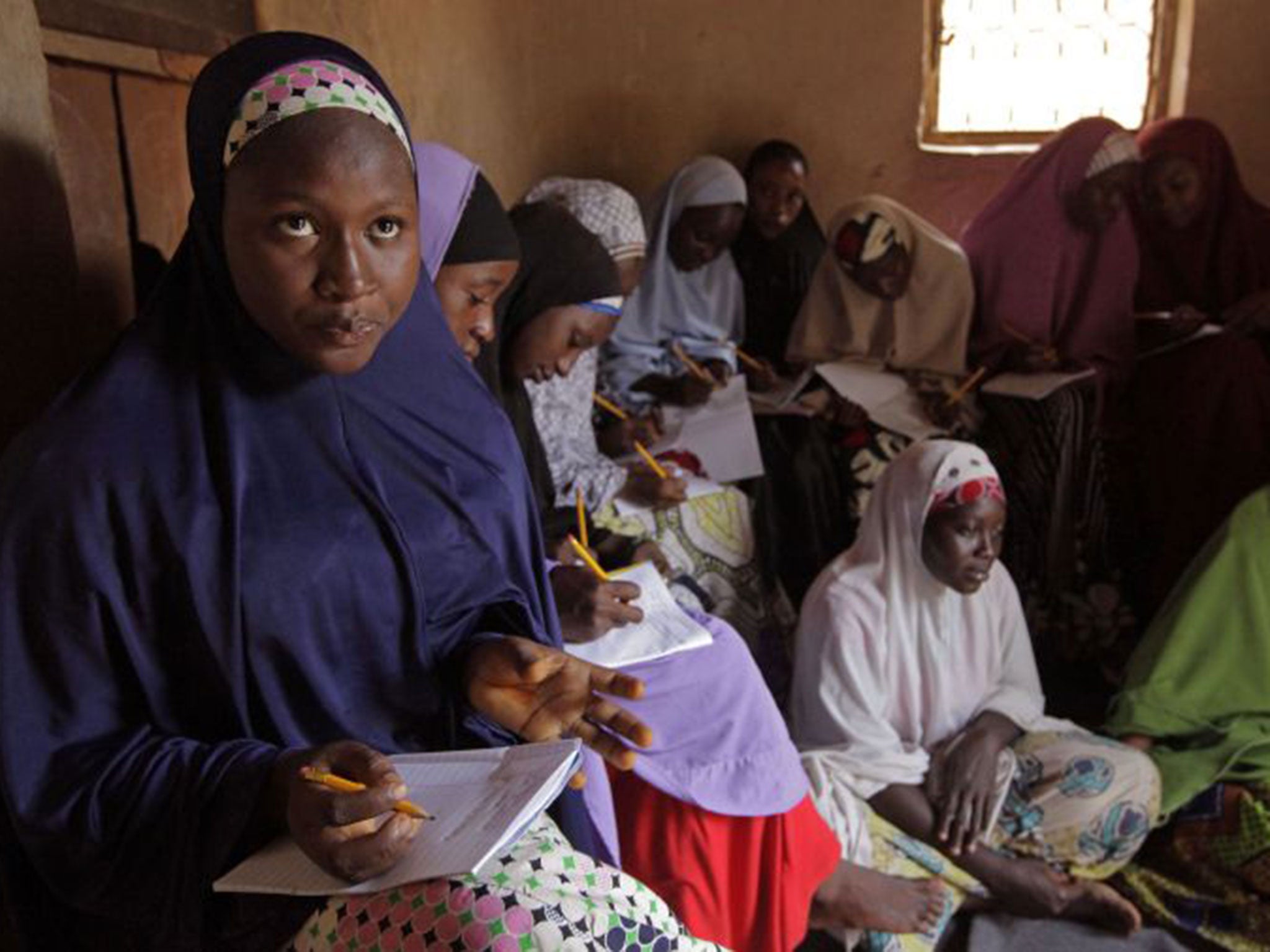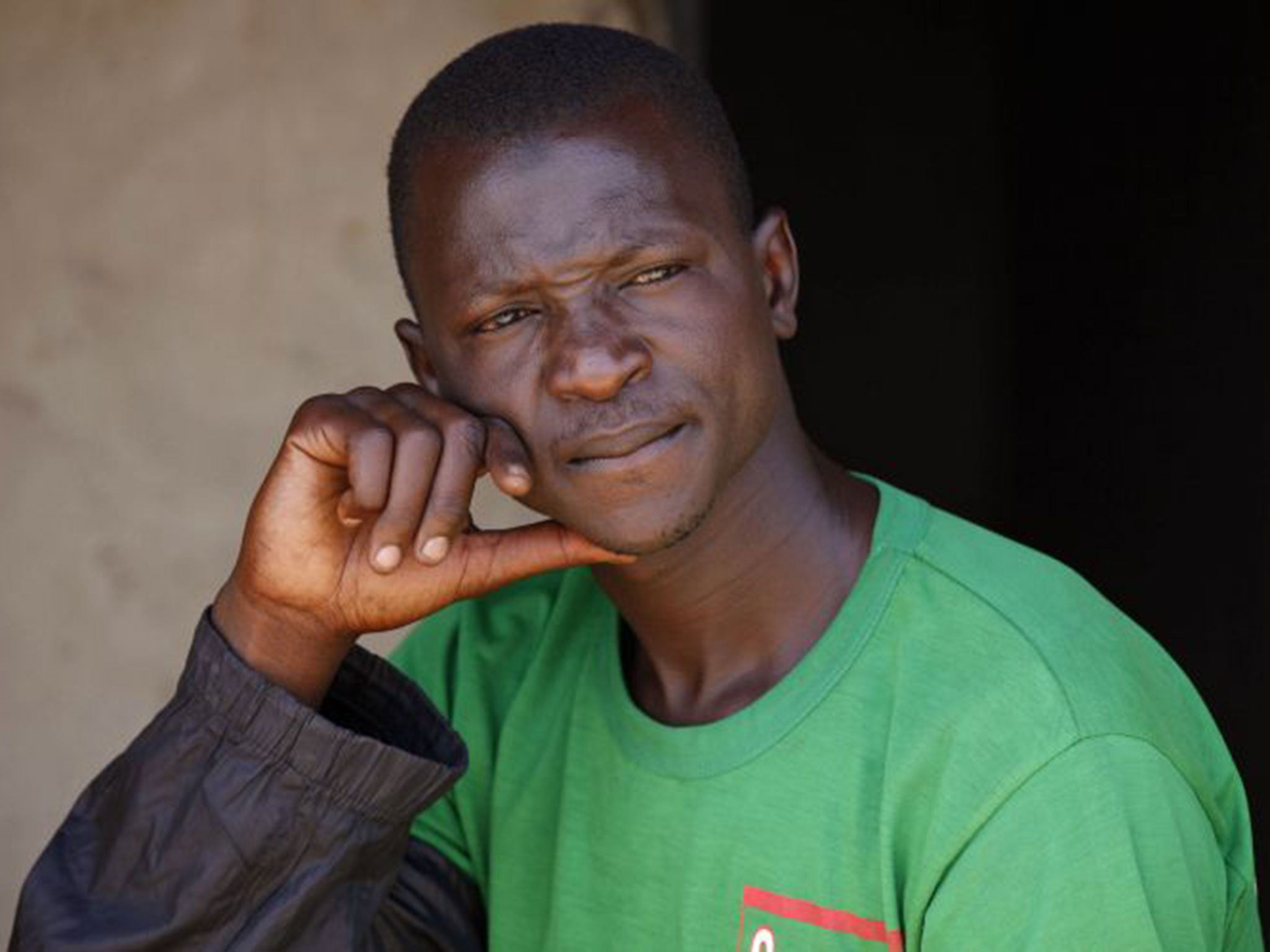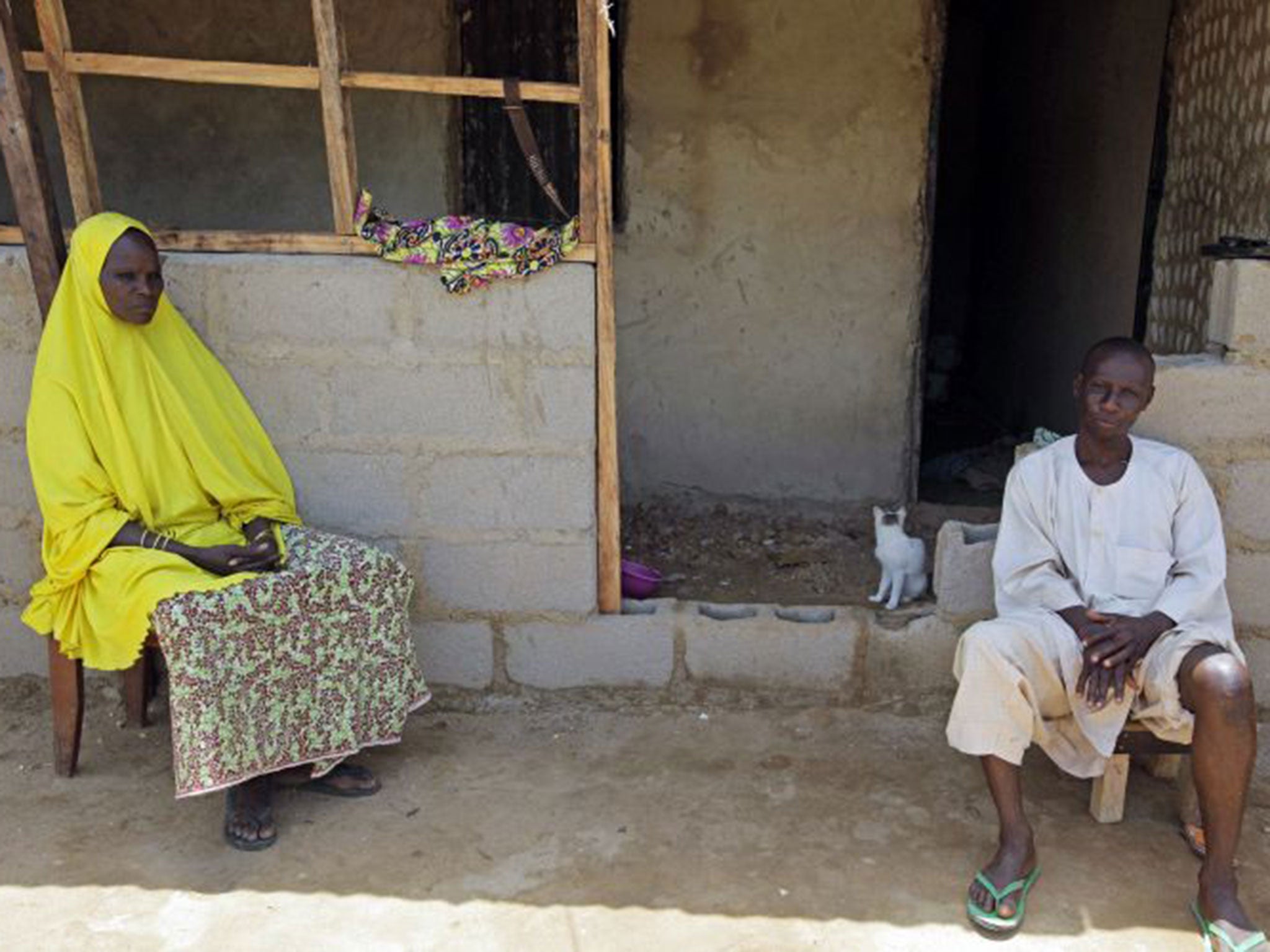Child divorcees of Nigeria face a bleak future after fleeing abusive marriages
Across the country, one in five girls is married before the age of 15, according to the UN

Your support helps us to tell the story
From reproductive rights to climate change to Big Tech, The Independent is on the ground when the story is developing. Whether it's investigating the financials of Elon Musk's pro-Trump PAC or producing our latest documentary, 'The A Word', which shines a light on the American women fighting for reproductive rights, we know how important it is to parse out the facts from the messaging.
At such a critical moment in US history, we need reporters on the ground. Your donation allows us to keep sending journalists to speak to both sides of the story.
The Independent is trusted by Americans across the entire political spectrum. And unlike many other quality news outlets, we choose not to lock Americans out of our reporting and analysis with paywalls. We believe quality journalism should be available to everyone, paid for by those who can afford it.
Your support makes all the difference.By the time she ran away, Maimuna bore the scars of a short but brutal marriage. Her battered face swelled so much that doctors feared that her husband had dislocated her jaw. Her back and arms were disfigured by angry welts from the whipping her father gave her for fleeing to him. She was gaunt from hunger, dressed in filthy rags. And barely a year after her wedding, she was divorced.
It would be a tragic story for a woman of any age. But for Maimuna Abdullahi, it all happened by the time she was 14. "I'm too scared to go back home," she whispers, frowning as she fiddles nervously with her hands. "I know they will force me to go back to my husband."
Maimuna is one of thousands of divorced girls in Nigeria, children who were forced into marriage and have since run away or been thrown out by their husbands. They are victims of a belief that girls should get wed rather than educated, which drew the world's attention after Boko Haram terrorists abducted more than 200 schoolgirls two months ago and threatened to marry them off. Most are still missing.
Maimuna's former husband, Mahammadu Saidu, blames her few years of school for her "disobedience". A handsome man of 28 who is obviously proud of his ankle-high boots, he does not deny beating his wife. "She had too much ABCD," he says. "Too much ABCD."
Nigeria, a country of about 170 million, has one of the world's highest rates of child marriage. The custom of child marriage is still ingrained enough for a middle-aged federal senator to have married five child brides and divorced at least one.
Across the country, one in five girls is married before the age of 15, according to the United Nations. In the desperately poor Muslim north, where child marriage is often considered acceptable by sharia, that number goes up to one in two.

This is also where Boko Haram is trying to impose its extreme vision of Islam, changing the face of the region and its girls. Yesterday, the group was blamed for a bombing on Friday in the northern city of Bauchi that killed at least 10 people in a building believed to have been a brothel. Children as young as five now hide their heads and shoulders in hijabs, a rare sight only a few years ago. Some girls become wives as early as nine.
There are no official numbers for just how many of these girls get divorced, often ending up destitute and shunned by their families. But they are all too visible. A few miles from where Maimuna lives, children her age and younger sell their bodies to truck drivers, flitting in and out of vehicles.
Maimuna was saved from this fate by Saadatu Aliyu, who has turned an old family home into a school for divorced girls. At the Tattalli Free School, which gets by on private donations, a couple of dozen girls gather in the courtyard for a sewing lesson. Toddlers mill around – the children of divorced girls who came in pregnant.
"Nobody knows how many thousands of them there are," says Aliyu, of the girls. "That's why we have so many prostitutes, and very young ones, in the north."
Maimuna grew up on the outskirts of Kaduna, in a half-finished brick building on the edge of a middle-class suburb. Her father, a farmer called Haruna Abdullahi, picks up a stone and throws it at a stray dog. At 45, he's been married for 30 years and has fathered eight children. "It's our culture to give our girls in marriage," he says. "From the age of 12, a girl can go to her husband's house."
His wife, Rabi Abdullahi, nods, and asks her husband's permission before talking. She too was a child when she married, although she does not know exactly how old.
"It is our way of life," she says. "In my day, a bride would never dare to run away."
She insists that her husband is not a cruel man, pointing to a well he built so she did not need to walk more than a mile to collect water.
A marriageable daughter can bring in a bride price and mean one less mouth to feed. So in late 2012, Maimuna's father arranged to marry his eldest daughter to his best friend's eldest son. The son, Saidu, paid a dowry of $210 for Maimuna – more cash than Abdullahi has had in his life. She was 13, and he was twice her age.

Saidu says that he has known Maimuna all his life, and waited years for her to reach what he considers marriageable age. "We were always meant to be together." Saidu says he promised Maimuna she could carry on going to school. But he also worried. "If she is educated, she will be looking down on me because I didn't go to school, so she will be the husband and I will be the wife," he says.
Maimuna said she begged her father to let her stay in school. She had always been a good daughter, obedient, hard-working and popular with her friends. The link between child marriage and education is clear. Only 2 per cent of married girls in Nigeria go to school, compared with 69 per cent of unmarried girls, according to the UN. Some 73 per cent of married girls received no schooling, and three out of four cannot read at all.
Nobody prepared Maimuna for the marriage bed. There was no advice, no warning of what to expect, even from her married friends. Every day she was exhausted, and when she finally got to bed, her husband wanted to "bother" her, she says. He never kept his promise to let her go to school.
Maimuna bided her time until the rainy season was over and her husband went to town to find work. Nine months ago, she escaped to her father, begging him to let her return home. Instead, she claims he whipped her until her back was raw. Then he summoned her husband and forced her to go back to him. Abdullahi denies beating his daughter.
Saidu, humiliated and furious, slapped her repeatedly in the face, jerking her head from side to side with the force of his blows. She fled once again, first to a sympathetic aunt in a nearby village and then to a cousin in Kaduna. She now shares one cramped room with her cousin's family, just a short walk away from Tattalli school.
Her husband waited the customary three months to make sure there was no baby. Then he divorced her, as a husband can do under sharia by declaring the divorce aloud three times. He informed her parents of the divorce in a letter on 14 February.
Saidu says he no longer cares for Maimuna and will move ahead with his life. "This time I will marry a girl of 12, so that she will do what I want to do," he says. "Because if you marry a girl who is older, then she will not listen to you."
AP
Join our commenting forum
Join thought-provoking conversations, follow other Independent readers and see their replies
Comments